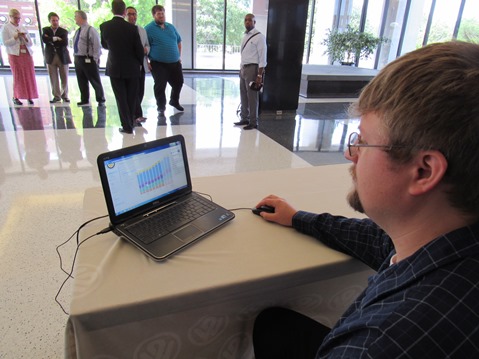
by Mary Rupert
The Unified Government announced a new level of high-tech access to data available to the public.
UG budget information is being place on the www.wycokck.opengov.com website, an open data platform, officials said Monday evening.
Mayor Mark Holland said the UG had the opportunity to join more than 300 other local governments in the Open Government platform.
The new data platform will allow the public and government officials to go to the website, analyze and compare data in a meaningful way, he said.
“It’s a very exciting opportunity for our community to help lead the way in transparency and openness about our finances,” he said.
The new data platform was unveiled on the same day the administrator’s 2016 budget was announced.
UG Administrator Doug Bach said the system is much more customer-friendly. Anyone would be able to find out easily, for example, how much is being spent on overtime through all departments or within a certain department.
“We’re really excited about this system,” he said. “We think it really puts information out there for the public to see and demonstrate to them how all our information is available, and also it’s a great tool for all our employees to use.”
Trying out the new system on a computer that was set up in the lobby of City Hall, Michael Peterson, a UG budget analyst, compared fuel costs among various departments, finding $1.5 million was spent for fuel for the Public Works Department last year and $490,000 for fuel for the Fire Department.
Joe Connor, assistant county administrator, said it’s important that he and other UG employees could find information in about 15 seconds instead of taking a much longer time to look it up in the budget documents or other documents.
The new UG open data platform may be accessed through the website, www.wycokck.opengov.com.
Contact Mary Rupert, editor, at maryr@wyandottepublishing.com.
